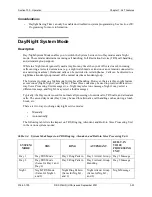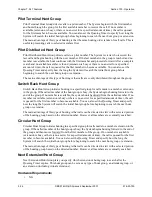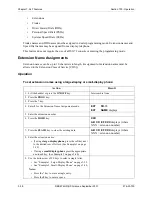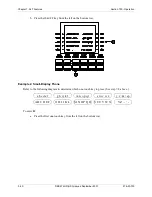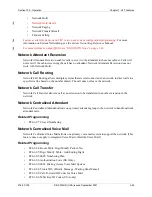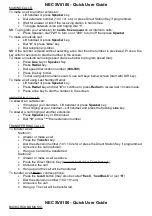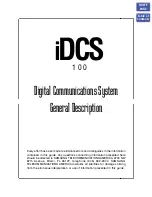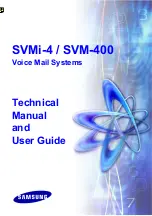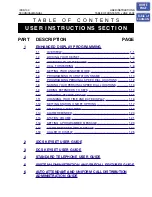
Section 700 - Operation
Chapter 7. SLT Features
576-50-700
DBS 576HD (USA) issued September 2001
3-35
Related Programming
•
FF5-1: Hunt Groups Mode
•
FF5-1: Pilot Number
•
FF5-1: Member
•
FF5-1: Delayed Hunt Timer
•
FF5-1: Queuing Timer
•
FF5-1: Next Hunting
Considerations
•
If a member of the hunt group has Do-Not-Disturb (DND) or Call Forwarding - All set, that
phone is temporarily removed from the hunt group.
•
If a member of the hunt group has Call Forwarding - Busy set and the extension is busy, the call
goes to the next phone in the hunt group.
•
If all members are busy for the duration of the busy queuing timer, the call can be forwarded to
another hunt group or another extension.
•
A hunt group can contain both real extensions and virtual extensions. If virtual, several phones
can be made to ring at the same time.
•
The pilot number for a hunt group is flexible (i.e., any extension number can be designated as the
pilot [not a real extension]).
•
Hunt groups support the following call types:
• Direct Inward Dialing (DID) / Dialed Number Identification Service (DNIS) / Direct
Dial Inward (DDI)
• Direct Inward System Access (DISA)
• Extension calls
• Private network attendant calls
• Call forward incoming
• Call forwarded to Attendant Hunt Group
•
For Version 3.5 and higher, a queuing wait timer allows you to queue calls in a Hunt Group for a
fixed period of time. When the call has passed through the Hunt Group once, the timer is
activated and the call is re-routed to the top of the group. The system continues to hunt for an
available agent until the timer limit expires, and the call is diverted to another location.
Internal Hold Tone
Description
If a Music-on-Hold (MOH) sound source is unavailable, a periodic hold tone generated internally in
the System can be provided to a caller. For more information, see “Music-on-Hold” on page 3-37.
Hardware Requirements
•
N/A
Related Programming
•
FF1: MOH Assignment



